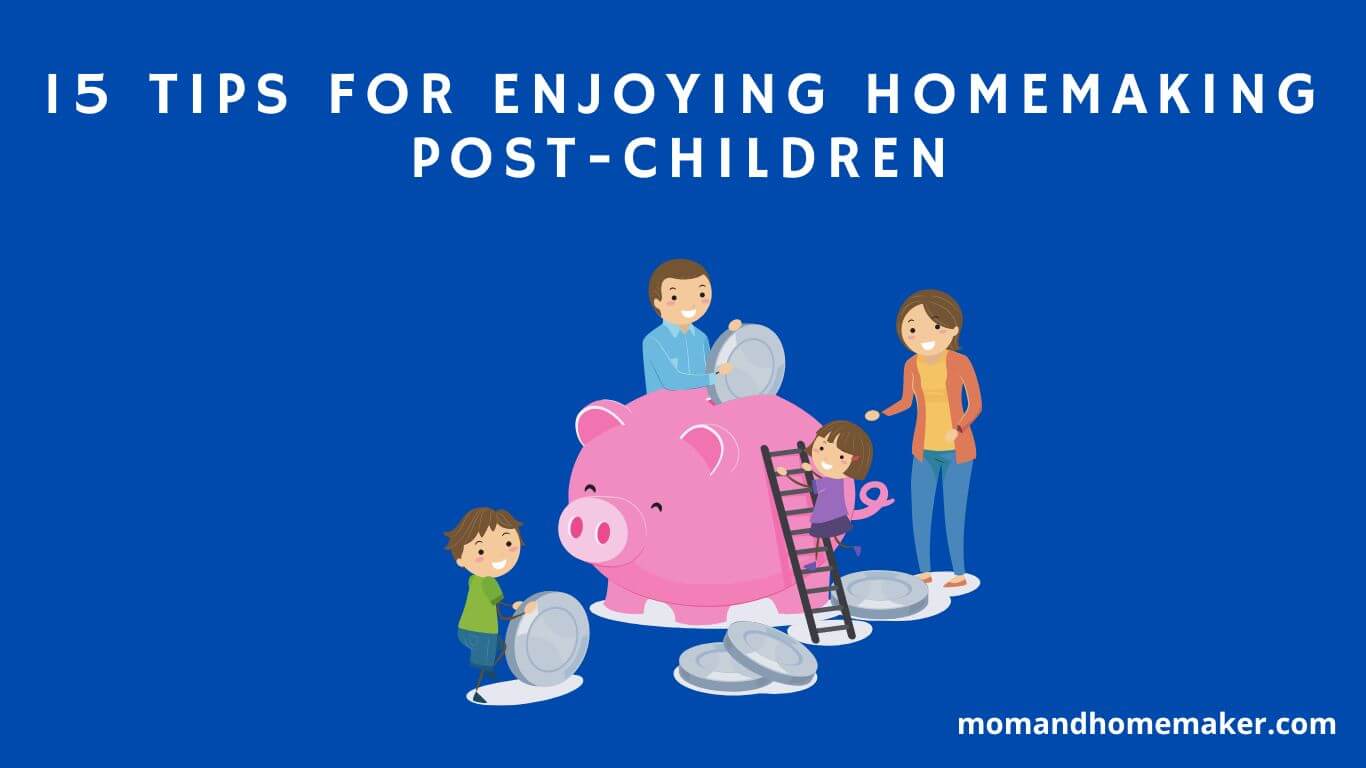Family life is a complex web of schedules and tasks that need to be managed effectively for a smooth and harmonious household. Whether it’s coordinating work hours, school activities, or household chores, finding a balance between everyone’s commitments can be quite a challenge.
However, the importance of harmonizing family schedules and tasks cannot be overstated. By so doing, families can not only reduce conflict and stress but also create a nurturing environment where everyone feels supported and valued.
By coordinating schedules and tasks, you can minimize stress and create a sense of balance and harmony. Not only will this improve communication and efficiency, but it will also maximize quality time together.

Minimizing Stress and Overwhelm
To minimize stress and overwhelm in your family, it’s crucial to harmonize everyone’s schedules and tasks. Life can get chaotic, especially when each family member has their own responsibilities and commitments. By improving communication and enhancing productivity, you can reduce conflicts and promote a healthier work-life balance.
One way to minimize stress is by creating a family calendar or schedule. This allows everyone to see what events and tasks are coming up, ensuring that nothing falls through the cracks. By involving the entire family in the planning process, you can foster a sense of belonging and ownership.
Another way to reduce stress is by delegating tasks. Assigning age-appropriate responsibilities to each family member not only lightens the load for everyone but also teaches valuable life skills. Encourage open communication about workload and support each other in completing tasks. This can help prevent one person from feeling overwhelmed or resentful.
Furthermore, setting realistic expectations is vital in promoting work-life balance. Understand that it’s okay to say no to certain commitments or activities if it means preserving your family’s well-being. Prioritize quality time together and make self-care a priority for everyone.
Improving Communication and Coordination
Improve communication and coordination within your family by regularly sharing updates and coordinating tasks. When family members are on the same page and have a clear understanding of each other’s schedules and responsibilities, it becomes easier to work together towards common goals. Effective communication allows you to address any conflicts or misunderstandings promptly, fostering a sense of unity and understanding within the family.
Enhancing coordination can be achieved by streamlining tasks and creating a system that works for everyone. By delegating responsibilities and establishing a routine, you can ensure that each family member knows their role and what is expected of them. This not only reduces the burden on one person but also promotes a sense of teamwork and shared responsibility.
To help you improve communication and coordination within your family, consider using the following table as a visual aid:
| Task | Responsible Family Member(s) |
|---|---|
| Meal Planning | Mom and Dad |
| Grocery Shopping | Mom |
| Cooking | Dad and Kids |
| Cleaning | Everyone |
| Homework Help | Mom and Dad |
| Family Outings | Everyone |
Creating a Sense of Balance and Harmony
Maintaining a sense of balance and harmony within your family is crucial for fostering a healthy and cohesive environment. Creating this equilibrium requires intentional effort and a commitment to establishing stability. When there’s balance in your family, everyone feels valued and supported, leading to a greater sense of belonging and connection.
To maintain harmony, it’s important to find a balance between work, school, and other commitments. Establishing a schedule that allows for quality time together, as well as individual pursuits can help achieve symmetry within the family dynamic. This can be as simple as setting aside dedicated family time each week or finding ways to include everyone in household tasks and responsibilities.
Communication is key to creating balance and maintaining harmony. Encourage open and honest conversations where everyone’s opinions and feelings are heard and respected. By addressing conflicts proactively and finding solutions together, you can prevent tension from escalating and maintain a harmonious atmosphere.
Remember that achieving balance and harmony is an ongoing process. It requires flexibility, compromise, and a willingness to adapt to changing circumstances. Embrace the uniqueness of each family member and celebrate their individual contributions to the family unit. By prioritizing balance and harmony, you can create a nurturing environment where everyone feels supported and loved.
Maximizing Quality Time Together
In our fast-paced and busy lives, it can be easy to let quality time slip through our fingers. We often find ourselves caught up in work, school, and other commitments, leaving little time for our loved ones. However, it’s crucial to remember that time is fleeting, and our children grow up so quickly.
Creating lasting memories is one of the greatest gifts we can give to our family. Whether it’s a family game night, a picnic in the park, or a movie marathon, these shared experiences will become cherished memories that we can look back on with fondness. These collective memories help to strengthen the bond between family members and create a sense of belonging.
Deepening connections within the family is also vital for a harmonious and loving environment. By spending quality time together, we have the opportunity to truly listen and understand one another. Engaging in meaningful conversations, sharing our hopes and dreams, and supporting each other’s goals will create stronger connections and foster a deeper sense of love and trust.
Nurturing relationships requires intentional effort. It’s not enough to simply be physically present; we must be emotionally present as well. By dedicating focused time to our family, we show them that they’re a priority in our lives. This helps to cultivate a sense of security and strengthens our emotional connection.
Fostering togetherness is about creating an environment where every family member feels valued and included. It’s about finding activities that everyone can enjoy and participate in. Whether it’s cooking together, going on a hike, or having a weekly family movie night, these shared experiences help to build a sense of unity and togetherness.
Enhancing Productivity and Efficiency
To enhance productivity and efficiency in your family, it’s important to streamline schedules and tasks. Increasing productivity isn’t about working harder, but about working smarter. By implementing time-saving strategies and streamlining tasks, you can optimize efficiency and make the most of your precious time together.
One effective way to increase productivity is by establishing effective scheduling. Take some time to sit down with your family and create a master schedule that includes everyone’s commitments, such as work, school, extracurricular activities, and personal appointments. This will help you identify any overlapping or conflicting commitments, allowing you to make adjustments and avoid unnecessary stress.
Streamlining tasks is another key to enhancing productivity. Look for areas where you can automate or delegate tasks, such as meal planning, grocery shopping, and household chores. Consider using technology, like mobile apps or online calendars, to help you stay organized and manage your family’s tasks more efficiently.
Optimizing efficiency also means setting realistic goals and prioritizing your tasks. Break down larger tasks into smaller, more manageable ones, and focus on completing the most important ones first. This will help you stay on track and avoid feeling overwhelmed.
Reducing Conflicts and Misunderstandings
Reducing conflicts and misunderstandings begins with effective communication and coordination of family schedules and tasks. When everyone in the family is on the same page and has a clear understanding of each other’s commitments and responsibilities, it becomes easier to avoid conflicts and misunderstandings. Here are some ways harmonizing family schedules and tasks can help reduce conflicts and misunderstandings:
- Enhancing Communication:
- Regularly communicate and update each other on individual schedules and commitments.
- Use shared calendars or family planning apps to keep everyone informed and involved.
- Maximizing Quality Time:
- By coordinating schedules, you can ensure that there’s dedicated time for family activities and bonding.
- Plan and prioritize activities that allow for meaningful interactions and create lasting memories.
- Fostering Teamwork:
- Assigning tasks and responsibilities to each family member helps distribute the workload and promotes a sense of shared responsibility.
- Encourage open communication and collaboration to ensure everyone feels valued and heard.
- Strengthening Relationships:
- By reducing conflicts and misunderstandings, you create a more harmonious environment where relationships can flourish.
- When everyone feels understood and supported, it fosters a sense of belonging and strengthens family bonds.
Promoting a Healthier Work-Life Balance
In order to achieve a healthier work-life balance, it’s crucial to prioritize and align family schedules and tasks. Work-life integration is key to finding harmony between your professional and personal life. It’s important to acknowledge that your personal well-being directly impacts your ability to thrive in the workplace. By creating a balance, you can ensure that your personal needs are met, allowing you to show up as your best self in all aspects of life.
Flexibility and adaptability are essential when it comes to harmonizing your family’s schedule with your work commitments. It’s important to find ways to accommodate both without compromising your well-being. This may involve setting boundaries and communicating openly with your family and employer about your needs and responsibilities.
Taking time for self-care is crucial in maintaining a healthy work-life balance. Make sure to carve out time for activities that rejuvenate you, whether it’s exercising, practicing mindfulness, or pursuing hobbies. Prioritizing self-care won’t only benefit your personal well-being, but also enhance your productivity and overall happiness.
Establishing healthy boundaries is another important aspect of achieving work-life balance. Clearly defining your work hours and personal time can help you avoid burnout and maintain a sense of control over your schedule. Remember, it’s okay to say no to additional work commitments when it interferes with your personal life.
Facilitating Better Time Management Skills
To effectively manage your time and balance your family’s schedules and tasks, it’s essential to prioritize and allocate your time efficiently. By incorporating effective time management skills into your daily routine, you can create a harmonious balance between your responsibilities and personal life. Here are some practical strategies to facilitate better time management skills:
- Time Tracking: Start by tracking how you currently spend your time. Use a planner or a digital tool to record your activities throughout the day. This will help you identify any time-wasting habits and areas where you can make adjustments.
- Task Delegation: Recognize that you don’t have to do everything yourself. Delegate tasks to other family members based on their abilities and interests. This not only lightens your load but also encourages teamwork and shared responsibility.
- Scheduling Conflicts: Anticipate potential conflicts by reviewing everyone’s schedules in advance. Identify overlapping commitments and find creative solutions to accommodate everyone’s needs. Communication is key here, so make sure to involve all family members in the planning process.
- Time Blocking: Set aside specific blocks of time for different activities, such as work, family time, household chores, and personal hobbies. This helps create structure and prevents time from slipping away unnoticed.
- Time Prioritization: Determine your priorities and focus on tasks that align with your values and goals. Learn to say no to activities that don’t contribute to your well-being or family’s harmony.
Encouraging Shared Responsibilities and Teamwork
Delegate tasks to foster a sense of shared responsibility and teamwork within your family. Encouraging shared responsibilities and teamwork is crucial for creating a harmonious and efficient household. By distributing tasks among family members, you promote shared accountability, effective collaboration, and a stronger sense of belonging.
The division of labor ensures that everyone contributes to the overall functioning of the family unit. Assigning specific responsibilities to each family member not only lightens the load for everyone but also allows for a more balanced and fair distribution of tasks. This prevents one person from feeling overwhelmed and promotes a sense of mutual assistance and support.
Effective collaboration is key to successful teamwork. Encourage open communication and active participation from each family member. This will foster a culture of cooperation, where everyone’s ideas and opinions are valued. By working together, you can accomplish tasks more efficiently and achieve better results.
Remember, shared responsibilities and teamwork require a collective effort. Emphasize the importance of each family member’s contribution and express gratitude for their efforts. This will create a positive and supportive environment that encourages continued collaboration.
Fostering a Supportive and Cohesive Family Unit
By fostering a supportive and cohesive family unit, you can strengthen the bonds between family members and create a harmonious household. This supportive environment not only enhances the overall family connection but also promotes the emotional well-being of each individual.
Here are some practical ways to foster a supportive and cohesive family unit:
- Effective Communication:
- Encourage open and honest communication among family members.
- Actively listen to each other’s thoughts, feelings, and concerns.
- Validate and respect each other’s perspectives.
- Shared Goals:
- Set shared goals as a family, such as spending quality time together or working towards a common objective.
- Involve everyone in decision-making processes.
- Celebrate achievements together, no matter how big or small.
Strengthening Relationships and Bonds
Strengthen your relationships and bonds within the family by actively coordinating and aligning schedules and tasks. By doing so, you promote balance and harmony in your household, creating a nurturing environment where everyone feels heard, supported, and valued. When you prioritize spending quality time together and engaging in meaningful activities, you enhance communication and deepen your connections with one another.
By harmonizing your family’s schedules and tasks, you increase efficiency and reduce stress. When everyone knows what needs to be done and when it becomes easier to manage responsibilities and avoid unnecessary conflicts. This not only saves time but also allows you to focus on what truly matters – building strong relationships with your loved ones.
Coordinating schedules and tasks also foster teamwork within the family. By involving everyone in the decision-making process, you create a sense of ownership and shared responsibility. This promotes a collaborative spirit, where each family member feels valued and contributes to the overall well-being of the family unit.
In addition, aligning schedules and tasks provides opportunities for quality time together. Whether it’s cooking dinner as a family, going for walks, or simply sitting down to have meaningful conversations, these shared experiences strengthen the bonds between family members. These moments create memories that will be cherished for years to come.
Teaching Valuable Life Skills and Prioritization
When coordinating and aligning schedules and tasks within your family, you can teach valuable life skills and prioritization to each family member. By involving everyone in the process, you not only create a sense of belonging and teamwork but also provide opportunities for valuable problem-solving and effective decision-making.
Here are some ways to teach these skills:
- Time Allocation: Encourage each family member to assess their responsibilities and prioritize them based on urgency and importance. Teach them how to allocate their time effectively by setting goals and deadlines. This will help them develop a sense of responsibility and learn how to manage their time wisely.
- Self-discipline: Teach your family members the importance of self-discipline in completing tasks and meeting deadlines. Encourage them to set realistic goals and create a schedule that allows for focused work time. By instilling self-discipline, you’re equipping them with valuable life skills that will benefit them in various aspects of their lives.
- Task Delegation: Teach your family members how to delegate tasks effectively. Show them the importance of recognizing each person’s strengths and assigning tasks accordingly. By learning how to delegate, they’ll not only lighten their own load but also foster a sense of teamwork and cooperation within the family.
Instilling a Sense of Structure and Routine
Creating a sense of discipline and order is crucial for your family’s overall well-being. Daily routines provide a predictable framework that helps everyone manage their time effectively and reduces stress.
To instill a sense of structure and routine, start by establishing consistent schedules for meals, bedtime, and other regular activities. Make sure these schedules are communicated clearly and understood by all family members. Encourage everyone to participate in creating and maintaining these routines, so they feel a sense of ownership and responsibility.
Time management is key in maintaining order and structure within your family. Teach your children the importance of prioritizing tasks and managing their time effectively. Setting realistic goals and expectations can help them develop good habits and stay on track. Encourage them to use tools like calendars and to-do lists to stay organized.
Consistency is essential in establishing routines. Stick to the schedules you have set as much as possible, but be flexible when necessary. Life happens, and unexpected events can disrupt even the best-laid plans. By maintaining a consistent approach, you teach your family resilience and adaptability.
Creating a sense of structure and routine in your family’s schedules and tasks not only helps with time management but also fosters a sense of belonging and security. It provides a solid foundation for growth and development, allowing everyone to thrive.
Providing a Sense of Security and Stability
To ensure a sense of security and stability within your family, prioritize harmonizing schedules and tasks. By creating a predictable routine and consistent environment, you can provide a foundation for your family’s emotional well-being. Here’s why it’s important:
- Sense of Stability: When your family knows what to expect each day, it creates a sense of stability. This helps everyone feel secure and grounded, knowing that there’s a structure in place that they can rely on.
- Feeling Secure: A harmonized schedule and tasks give your family members a feeling of security. They know that their needs will be met and that they can depend on each other. This sense of security fosters a deep sense of belonging and strengthens your family bond.
- Emotional Well-being: A consistent routine and environment contribute to your family’s emotional well-being. It reduces stress and anxiety, allowing everyone to relax and enjoy each other’s company. It also provides opportunities for quality time and open communication, which are essential for maintaining positive relationships.
- Predictable Routine: A harmonized schedule allows your family to anticipate what’s coming next. This predictability helps children feel safe and secure, as they know what’s expected of them. It also promotes independence and responsibility, as they learn to manage their time and tasks within the established routine.
- Consistent Environment: A harmonized family schedule creates a consistent environment. This consistency helps everyone feel grounded and connected, as they know what to expect from each other and their surroundings. It fosters a sense of belonging and unity, making your family a strong and supportive unit.
Setting a Positive Example for Children
One way to set a positive example for your children is by prioritizing the harmonization of your family’s schedules and tasks. As parents, we have the incredible opportunity to be positive role models for our children. By showing them how to effectively manage our time and responsibilities, we teach them valuable lessons about character development, healthy habits, emotional intelligence, and effective communication.
Children learn by observing the behavior of those around them, especially their parents. When they see us prioritizing and organizing our schedules, they understand the importance of being responsible and accountable. This sets a foundation for them to develop good time management skills, which will benefit them throughout their lives.
By harmonizing our family’s schedules and tasks, we demonstrate effective communication and teamwork. When children witness their parents collaborating and supporting each other, they learn the value of cooperation and problem-solving. They see that working together as a family can lead to greater harmony and productivity.
Furthermore, when we prioritize the harmonization of our family’s schedules and tasks, we create a sense of stability and predictability for our children. This helps them feel secure and confident, knowing that they can rely on their parents and their family unit.
Conclusion
Harmonizing family schedules and tasks is crucial for creating a balanced and harmonious household.
By prioritizing and coordinating tasks, you can maximize quality time together and enhance productivity.
Teaching your children valuable life skills and instilling a sense of structure will provide them with a sense of security and stability.
Start today and set a positive example for your family.













